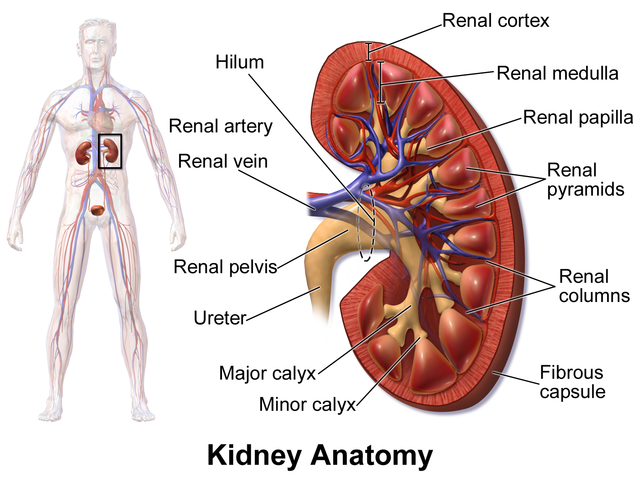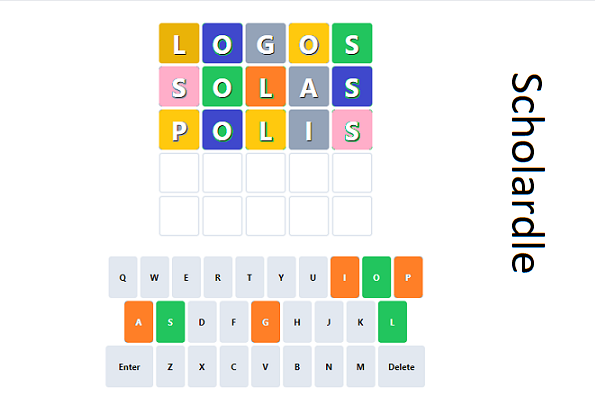Health
What Are the 10 Best Foods for Kidney Disease?

Introduction:
Managing kidney disease involves adopting a kidney-friendly diet to support overall health. In this guide, we’ll delve into the intricacies of the 10 best foods for kidney disease, exploring how each contributes to renal health.
1. Cauliflower:
Cauliflower is a kidney-friendly vegetable due to its low potassium and phosphorus content. These minerals, when present in excess, can be taxing on the kidneys. Additionally, cauliflower is rich in fiber, promoting digestive health. A healthy digestive system indirectly supports kidney function by preventing the buildup of waste products.
2. Berries:
Berries, such as strawberries, blueberries, and raspberries, offer a burst of flavor while being low in potassium. Their key asset lies in the abundance of antioxidants, which combat inflammation. Inflammation is a common concern for individuals with kidney disease, and the anti-inflammatory properties of berries contribute to renal well-being.
3. Fish:
Fatty fish like salmon, trout, and tuna provide high-quality protein essential for maintaining muscle mass. The omega-3 fatty acids found in these fish have anti-inflammatory effects, potentially reducing the risk of kidney-related complications. Moreover, these healthy fats support cardiovascular health, an important consideration for those with kidney disease.
4. Egg whites:
Egg whites are an optimal protein source that spares the kidneys from the phosphorus present in egg yolks. High-quality protein is vital for preventing muscle wasting, a common issue in advanced kidney disease. By choosing egg whites, individuals can maintain protein intake without overburdening the kidneys.
5. Olive Oil:
Olive oil, rich in monounsaturated fats, promotes heart health without contributing to sodium-related concerns. A healthy cardiovascular system indirectly supports kidney function by ensuring efficient blood flow, reducing the risk of kidney damage.
6. Garlic:
Garlic, a versatile seasoning, enhances the flavor of dishes without increasing sodium intake. Additionally, garlic possesses anti-inflammatory and antioxidant properties, potentially mitigating kidney stress. Its natural flavor profile makes it a valuable addition to kidney-friendly recipes.
7. Cabbage:
Cabbage is not only low in potassium but also a good source of vitamins. Its nutrient density supports overall health and, when included in a renal diet, provides essential nutrients without overloading the kidneys. The versatility of cabbage allows for creative culinary applications in kidney-friendly meal planning.
8. Red Bell Peppers:
Red bell peppers are nutrient-rich and lower in potassium compared to some other vegetables. They contain essential vitamins, including vitamin C, which acts as an antioxidant. Antioxidants help combat oxidative stress in the kidneys, potentially protecting them from damage.
9. Apples:
Apples are a kidney-friendly fruit due to their low potassium content. Additionally, apples are rich in dietary fiber, promoting digestive health. Maintaining a healthy digestive system is crucial for individuals with kidney disease, as it supports the efficient elimination of waste products.
10. White Bread and Pasta:
While whole grains are often restricted due to their higher phosphorus content, white bread and pasta can be included in moderation. These provide a source of energy without exacerbating phosphorus-related concerns, allowing individuals with kidney disease to meet their nutritional needs.
Conclusion:
Incorporating the 10 Best Foods for Kidney Disease into your diet can profoundly impact renal health. Understanding the specific benefits each food offers allows individuals with kidney disease to make informed dietary choices that support overall well-being. Always consult with healthcare professionals or dietitians for personalized advice based on your unique condition.
Health
What criteria do medical recruiters examine when hiring a physician for a hospital position?

In the fast-paced realm of healthcare, the pivotal role of a physician extends beyond clinical expertise—it encompasses a delicate blend of skills and attributes that resonate with the specific needs of a hospital. Picture this: a dedicated doctor recruiter meticulously sifting through a pool of candidates, seeking the ideal physician to join the hospital’s dynamic team.
What criteria do medical recruiters examine when hiring a physician for a hospital position? As we delve into this critical aspect of healthcare staffing, we’ll unravel the key elements that elevate a physician from a mere applicant to an indispensable asset for a hospital, shedding light on the nuanced considerations that drive the decisions of these discerning doctor recruiters.
Join us on a journey through the intricacies of physician recruitment, where qualifications meet the art of matching the right medical professional with the unique demands of a hospital environment.
Introduction
The demand for highly qualified physicians in hospital settings is ever-increasing. The right hire can significantly impact patient care, staff morale, and the overall success of a medical institution. Understanding the criteria that medical recruiters focus on is crucial for both aspiring physicians and those responsible for the hiring process.
Educational Background
Medical Degree and Specialization
The foundation of a physician’s career lies in their educational background. Recruiters scrutinize the medical degree and specialization, ensuring it aligns with the needs of the hospital. Specialized skills are often required for specific departments, making this a critical consideration.
Residency and Fellowship Training
Beyond the degree, recruiters delve into residency and fellowship training. The hands-on experience gained during these periods shapes a physician’s clinical skills and expertise. Hospitals seek candidates whose training aligns with the services they offer.
Clinical Experience
Years of Practice
The number of years a physician has been in practice is a key factor. While experienced candidates bring a wealth of knowledge, recruiters also consider the freshness of recent graduates who might bring innovative approaches.
Expertise in Specialized Areas
Recruiters assess a physician’s expertise in specialized areas. Whether it’s cardiology, neurology, or surgery, the hospital’s needs dictate the specific skills they seek in a candidate.
Licensure and Certification
State Licensing
State licensing is a non-negotiable aspect of a physician’s eligibility. Recruiters ensure that candidates are licensed to practice in the state where the hospital is located.
Board Certification
Board certification adds an extra layer of assurance regarding a physician’s proficiency. Hospitals often prioritize candidates who have achieved board certification in their respective specialties.
Soft Skills and Interpersonal Qualities
Communication Skills
Effective communication is paramount in healthcare. Recruiters evaluate a physician’s ability to communicate clearly with patients, colleagues, and support staff.
Team Collaboration
Hospital environments thrive on collaboration. Physicians who can seamlessly work in a team contribute to a positive workplace culture, enhancing patient care outcomes.
Empathy and Patient Care
Empathy is the cornerstone of patient care. Recruiters assess a physician’s ability to connect with patients on a personal level, fostering trust and comfort.
Adaptability and Flexibility
Handling Stressful Situations
Medical settings can be intense, requiring physicians to handle stress with composure. Recruiters gauge a candidate’s ability to navigate high-pressure situations effectively.
Willingness to Learn and Adapt
The medical field is evolving rapidly. Recruiters seek candidates who demonstrate a proactive approach to ongoing learning and adaptation to new medical technologies and practices.
Cultural Fit
Alignment with Hospital Values
Hospitals often have distinct values that guide their approach to patient care. Recruiters look for candidates whose values align with those of the institution.
Understanding Diversity
In a diverse healthcare landscape, understanding and respecting various cultures and backgrounds is crucial. Recruiters assess a physician’s cultural competence to ensure comprehensive and inclusive patient care.
Leadership and Management Skills
Ability to Lead Teams
Physicians, especially in leadership roles, must exhibit strong leadership skills. Recruiters evaluate a candidate’s ability to lead teams effectively and contribute to the hospital’s overall strategic goals.
Decision-Making Skills
Quick and informed decision-making is essential in healthcare. Recruiters seek candidates who showcase sound judgment and critical decision-making skills.
Technological Proficiency
Electronic Health Record (EHR) Knowledge
The integration of technology in healthcare is inevitable. Recruiters look for physicians who are proficient in using electronic health records, ensuring efficient and accurate patient information management.
Embracing Technological Advances
Hospitals value candidates who embrace technological advances in the medical field. A tech-savvy physician can contribute to the seamless adoption of innovative practices within the institution.
Research and Publications
Contribution to Medical Knowledge
Physicians involved in research contribute significantly to advancing medical knowledge. Recruiters consider a candidate’s research contributions, which can enhance the hospital’s reputation and academic standing.
Published Research and Journals
Published research and articles in reputable journals showcase a physician’s commitment to staying at the forefront of medical advancements. Recruiters value candidates who actively contribute to the academic community.
Networking and Professional Relationships
Collaborations with Other Healthcare Professionals
Healthcare is a collaborative effort. Recruiters look for candidates who have a history of successful collaborations with other healthcare professionals, fostering a supportive and cooperative work environment.
Participation in Medical Associations
Active participation in medical associations indicates a commitment to ongoing professional development. Recruiters appreciate physicians who engage with the larger medical community.
References and Recommendations
Importance of References
References provide insights into a candidate’s professional conduct. Recruiters carefully consider references to ensure a candidate’s compatibility with the hospital’s work culture.
Impact of Professional Recommendations
Recommendations from colleagues and mentors carry weight. Positive recommendations can reinforce a candidate’s suitability for a hospital position.
Legal and Ethical Compliance
Adherence to Medical Ethics
Medical ethics are non-negotiable. Recruiters assess a candidate’s commitment to ethical medical practices, ensuring patient safety and trust.
Understanding Legal Obligations
A sound understanding of legal obligations in healthcare is essential. Recruiters seek candidates who are knowledgeable about and compliant with legal requirements in their practice.
Interview Performance
Key Questions and Scenarios
The interview is a crucial step in the hiring process. Recruiters design questions and scenarios to assess a candidate’s problem-solving skills, ethical decision-making, and overall suitability for the role.
Assessment of Critical Thinking
Critical thinking is a prized skill in healthcare. Recruiters gauge a candidate’s ability to think critically and make informed decisions in real-time situations.
Conclusion
In the highly competitive landscape where a doctor recruiter play a pivotal role, the criteria for hiring physicians transcend mere clinical competence. Recruiters meticulously assess educational backgrounds, clinical experience, soft skills, adaptability, cultural fit, leadership qualities, technological proficiency, research contributions, professional relationships, references, legal compliance, and interview performance.
Striking the right balance among these criteria is essential to ensure hospitals welcome physicians who not only meet medical requirements but also contribute to fostering a positive and collaborative healthcare environment.
Health
Exploring the Unique Charm of Plumcots: A Perfect Blend of Plums and Apricots
Health
Sensual Massage: An Intimate Exploration of Connection and Pleasure

-
General10 months ago
Orchard Grass (Dactylis glomerata): A Botanical Epic
-
Lifestyle10 months ago
Fascinating World of ‘Cristoferideas’ and their Viral TikTok Video
-
Technology10 months ago
GPT66x: Boosting Talks with Transformer & Optimization
-
Gaming1 year ago
Scholardle: The Academic Word Guessing Game
-
Lifestyle10 months ago
Meet Katie Sakov San Francisco’s Talented Writer and Editor
-
Technology1 year ago
WHAT YOU SHOULD KNOW ABOUT PISIPHON VPN
-
Lifestyle10 months ago
Shine Bright with Mazalti: Jewelry Collections
-
Blog1 year ago
Record Of The Mightiest Lord Chapter 1













